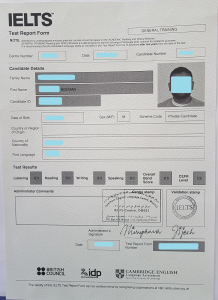Model Answers for the Speaking Part 1 Topic: Dreams. I’ve written a few model answers for each question so you can see the usual length of answers. You do not need to concern yourself too much with the length of answers in part 1. Just keep talking and allow the examiner to interrupt you when the examiner wants to move to the next question. Allow the examiner to guide you through the test.
I’ve also written a list of useful vocabulary for Dreams Topic below.
Dreams – IELTS Speaking Part 1 Questions
- Do you often have dreams?
- Do you usually remember your dreams?
- Do you think we can learn something from dreams?
Model Answers for Dreams IELTS Speaking Part 1
- Do you often have dreams?
- Yes, I do. I have quite vivid dreams about things that are going on in my life at the time and I even have nightmares sometimes.
- No. I usually sleep very deeply and so I don’t dream at all.
- I used to dream all the time but in the last few years I’ve hardly had any dreams at all.
- I usually have dreams when I’m upset about something. I guess it’s my subconscious trying to work things out. But other than that, I don’t often dream.
- Do you usually remember your dreams?
- No, they’re usually very vague and I only remember the odd thing or image. But I can never remember the entire dream as they are too abstract.
- No, luckily I don’t remember them as they are almost always nightmares.
- Yes, I do. I remember almost every dream I have. I keep a dream diary so that I can analyse them later.
- Do you think we can learn something from dreams?
- No, I don’t. I think dreams are nonsense and not based in reality so I don’t think people should waste their time trying to find a meaning in them.
- No, I don’t. I think most people dream because they are not relaxed enough and are not able to enter deep sleep. I don’t think there’s any meaning in what people dream.
- Yes, I do. I think our subconscious is trying to figure things out and we can find clues by analysing our dreams.
- Yes, I do. I think dreams can reveal hidden messages if we know how to interpret them correctly.
- Yes, I do. I know dreaming of a snake means that enemies are close. And if you dream of your teeth falling out, it means a big change will happen in your life. I think dreams are very symbolic.
Useful Vocabulary for Dreams Speaking Topic:
It is possible to get this topic in Speaking part 2 and part 3. So, use this vocabulary list to help you prepare.
- disturbed sleep / disrupted sleep
- deep sleep
- peaceful sleep
- nightmares
- daydreams
- vivid dreams
- vague dreams
- abstract dreams
- subconscious thinking / subconscious mind
- symbolic meaning
- to analyse our dreams
- nonsense
- dream diary
- reveal messages
- interpret dreams
- dreams represent conflicted emotions or thoughts
- dreams associated with past memories and current concerns
- sleep cycles – people go through various cycles of sleeps during the night. Vivid dreams mostly happen during the REM cycle.
- to fall asleep / struggle to get to sleep / struggle to stay asleep / wake up during the night
Recommended for you:
See ALL IELTS Speaking Tips & Model Answers
.







